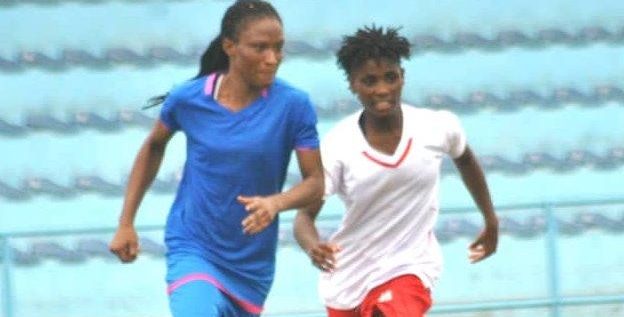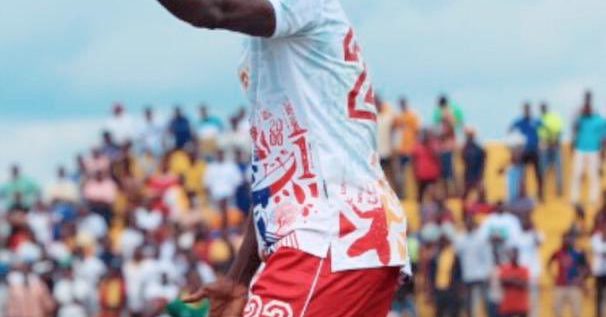How Poor Management, Lack Of Pay Forced Pelicans Stars Player To Become A Hairdresser

![]()
When you’ve just won promotion back to the top division for your country’s most successful female football team, you’d imagine that heady days are around the corner.
That may have been the case for Chinenye Okafor but far from the way she imagined.
Okafor, a vice-captain of Pelican Stars, quit football in July to take up a job as a hairdresser after going without pay for over a year.
While some of this was caused by the coronavirus pandemic, the rest was caused by officials at the club owned and run by Cross River State, located in southern Nigeria.
“I can’t even tell someone that I’m a footballer because I’m ashamed that after loving football for 22 years, there is nothing to show for it,” the 28-year-told BBC Sport Africa.
“I’m now a hairdresser and I can see that with this, I can go on with my life. I work from 8.30 to 5.30, Mondays to Saturdays. It’s tough but thank God I’m making it.”
It is quite a contrast to when she was pursuing her lifelong passion of playing football yet suffering deeply because of it, as club officials simply failed to pay the women’s team.
Not just any women’s team but Nigeria’s most successful with 8 league titles, two better than their nearest rivals, and which counts two former African Players of the Year in Perpetua Nkwocha and Mercy Akide-Udoh as past stars.

Six titles came in nine years at the turn of the century but Stars’ fortunes have hugely dimmed since following years of underfunding and poor administration.
“I sometimes cried at night because the next morning, I didn’t have anything to eat. After two-three times, I made up my mind to come back to Lagos – because I can’t keep suffering,” she said.
Okafor joined Stars in 2018 and although her first season with the club ended in relegation, she relished the experience and lifestyle.
“Everything was going fine and I was happy that this was my breakthrough,” the defender explained.
“The payment was coming in, management were kind but at the end of the season, we were relegated.
“We decided that as players that since we were the ones that took the team to relegation, we would take the team back to the Premier League.”
They were as good as their word, bouncing back with an immediate promotion that was even celebrated at Cross River State’s Government House.
But the waters were muddying:
Midway through the season, a club that regularly paid salaries – which ranged from $78-182 – to its players by the end of every month started falling behind with payments.
The first time it happened was when February’s wages came in March. By June 2019, the payments simply stopped coming altogether.
Even before Covid-19 struck earlier this year, the situation had been rapidly deteriorating for Okafor and her team-mates as they held out for their delayed payments.
“Our club vice-chairman brought bags of rice and beans for us to have at home before the pandemic started,” she recalled.
“It was so bad in camp that we shared food. We also got mocked by local traders because sometimes we had to buy things on credit.”
A state commissioner brought more rice once coronavirus made its unwelcome entrance but Okafor’s challenging existence grew intolerable after Cross River State officials continued to fund men’s teams while ignoring the Stars’ pleas.
“I feel that women are discriminated against. They paid the men’s team, Unicem Rovers, and even the junior team, without paying us – even though our salary had been outstanding since June 2019.
“That was when I got angry. It was too much. We needed to do something for the state governor to know that something is going on.”
In April this year, after ten months without pay, the Stars players held their first protest outside state headquarters.
“The security at Government House harassed us and even brought out guns, saying we should all leave the premises. They said that because of Covid, we were not supposed to be there.
“I felt embarrassed. We had a team-mate that was sick, because she hadn’t had food to eat. She got a chronic ulcer and even now, I don’t think she (is in a state to) play football again.
“They did not even say: ‘Because of her, let us release one-two months’ salaries’.”
A second protest followed shortly after, whereupon the club management said all arrears would be settled by the end of April.
None ever came:
In order to feed themselves, Okafor and some team-mates started looking for other ways to make money while also having to ask others for help.
“Some of us were doing hair for a living or sewing clothes. We also had help from our family and from some fellow female professional footballers,” she said.
Meanwhile, the head of Nigeria’s Women’s League barred Pelican Stars from playing in the league until the salaries are paid – a situation that still stands today.
Ultimately, the lack of pay and regrettable living conditions eventually caused Okafor’s family to step in more forcefully.
“My dad began to call me to come back home, so I left the club in July. I’m now a hairdresser in Lagos,” she said.
“Nothing can be as fulfilling as playing football. to me, football makes me happy whenever I’m on the field of play
“I never saw myself hairdressing so I think I can say at the moment it is a chore.
“I am slowly getting to like it now and am even thinking of having my own salon sooner or later.”
But while she concentrates on styling her clients, the bounce Okafor is after is really that of a football – whose lure is irresistible for this fighter.
“If the 2021 season starts, I will for trials with another club,” she rallies. “I still do evening training after work to keep myself fit.”
Okafor’s former team-mates, meanwhile, have now gone 14 months without being paid, despite Cross River State’s Sport Commissioner promising to pay them last week.
“I will never give up on by career because of Pelican Stars,” says Okafor.
“My dream is to play for the Super Falcons of Nigeria and I know my dreams will come true one day. Football has been my joy, my life, my everything and I’ll keep fighting for it.”
BBC Credited




